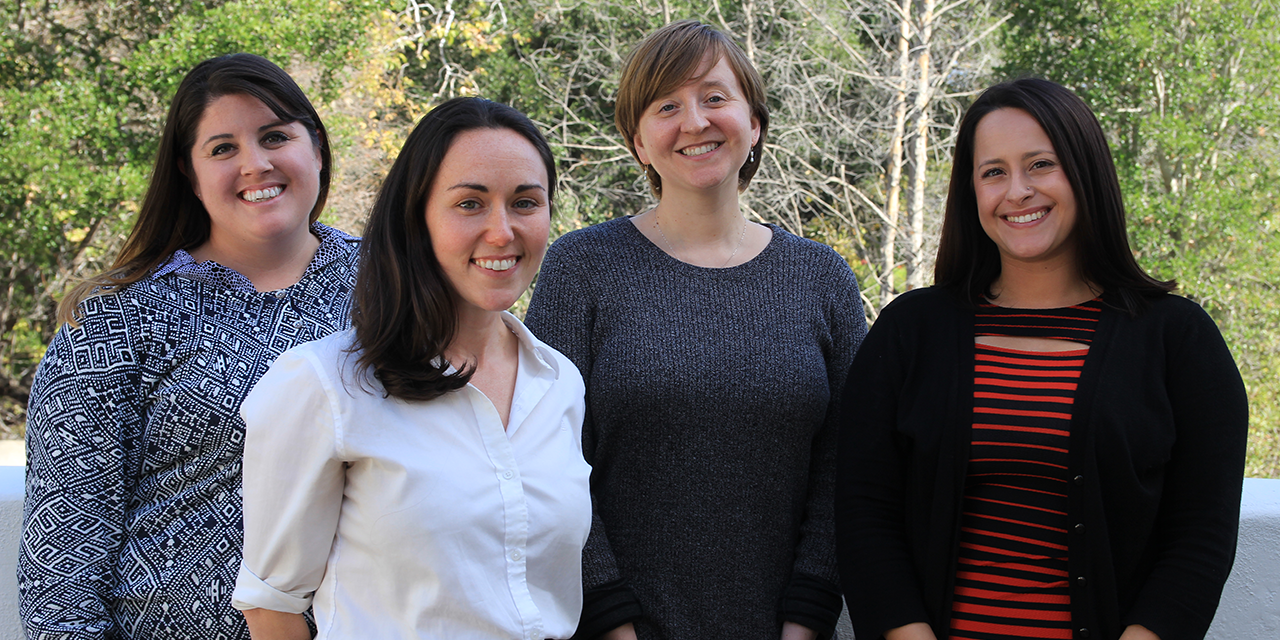In the fall of 2016, four PhD students from the Humanists@Work graduate advisory committee surveyed peers in the humanities and humanistic social sciences at their respective campuses (UC Berkeley, UC Davis, UC Merced, and UC San Diego) about attitudes towards post degree employment, on-campus resources regarding career exploration, and feelings of support from their department, campus, and peers. Across the four campuses surveyed there was a max total of 371 responses for any one question. Please see the full survey results and methodology for more information, including campus-by-campus breakdown.
Humanists@Work Career Preparation Survey ResultsThe Humanists@Work Career Preparation Survey was administered on four campuses by four members of the HumWork Graduate Advisory Committee: Erica Lee (Berkeley), Meg Sparling (Davis) Dorie Dakin Perez (Merced), and Olivia Quintanilla (San Diego). For those interested in exploring the survey results, we encourage you to download our aggregated survey results and methodology. We welcome you to use this data to help evaluate your own questions as they relate to career preparation for humanities graduate students at your institution. We ask, however, that you attribute this work and email humwork@hri.uci.edu if you produce any public-facing material using this survey data. |
Across the campuses, the survey responses revealed that:
Upon graduation, humanities PhDs imagine themselves pursuing tenure-track positions (79.2%), followed by non-tenure track positions (41.4%), non-profit work (35.7%), government employment (24.3%), and positions in private industry (22.2%).
What type of career do you plan to pursue after you graduate? (all campuses)*

(n=370)
*Participants were able to select more than one response
A majority (55%) of graduate students report being unfamiliar or unaware of campus-based resources regarding career exploration, and yet:
- Over half of the students surveyed (53.8%) report feeling prepared or somewhat prepared to pursue a career outside of the academy, and
- Almost half (48.2%) report feeling unsupported by their department, with a third of the students reporting that they feel unsupported by their institution.
Some encouraging trends in the results show that almost half (49.6%) feel supported by their peers regarding their career development and exploration. It shouldn’t be a surprise, then, that so many students (61.8%) report that peers and friends are their go-to resources for career mentoring. It is worth noting that students also identified faculty (47.9%) and their department (39.1%) as sites of career mentoring as well.
Where do you currently receive career mentoring? (all campuses)*

(n=353)
*Participants were able to select more than one response
At Humanists@Work, we have been engaged in discussions about career exploration and the role of community since 2014. What we have learned, and what the recent data supports, is that community matters. In our experience, when graduate students are part of a community of peers, their perception of their readiness and ability to succeed is higher than for those without access to a supportive community, and students’ ability to ultimately obtain satisfying careers improves as well. Another way of discussing community is through the language of networks, and we have included a focus on building and sustaining networks as part of our workshops since our second HumWork workshop (San Diego, 2015). In fostering these communities, Humanists@Work prioritizes discussions and material resources that convey that graduate students are already valued professionals within and beyond the campus community.
What follows is a campus-by-campus analysis of the results according to the advisory committee member who conducted the survey. Institutional cultures vary across the campuses, as do resources. Although there are some common themes to note across the system, it’s critical to acknowledge the differences. And as other campuses engage with the survey (such as UC Irvine in spring 2017), we will update this page with their results.
Olivia Quintanilla, Ethnic Studies, UC San Diego
 The UC San Diego survey revealed 81.6% of respondents crave tailored career preparation training within their department or program. This was a striking data point because program-specific career training is what many expect to receive when they enroll in a graduate program but the majority acknowledged an unforeseen disconnect between what they’re expected to do post-graduation, and what they’re prepared to pursue. Our PhDs enjoy their programs but wish to incorporate industry-friendly training and tangible skill-building into curriculum and conversations within their department. A common theme from the survey data (and past Sacramento, Los Angeles, and Santa Barbara Humanists@Work workshops) is students feel the necessity to operate and hustle outside of their programs to survive in graduate school and the job market. It seems students are attempting to visualize the possibilities and opportunities of their degree beyond the limits of what departments are prepared to support.
The UC San Diego survey revealed 81.6% of respondents crave tailored career preparation training within their department or program. This was a striking data point because program-specific career training is what many expect to receive when they enroll in a graduate program but the majority acknowledged an unforeseen disconnect between what they’re expected to do post-graduation, and what they’re prepared to pursue. Our PhDs enjoy their programs but wish to incorporate industry-friendly training and tangible skill-building into curriculum and conversations within their department. A common theme from the survey data (and past Sacramento, Los Angeles, and Santa Barbara Humanists@Work workshops) is students feel the necessity to operate and hustle outside of their programs to survive in graduate school and the job market. It seems students are attempting to visualize the possibilities and opportunities of their degree beyond the limits of what departments are prepared to support.
What resources would help you have a successful job search? (San Diego)*
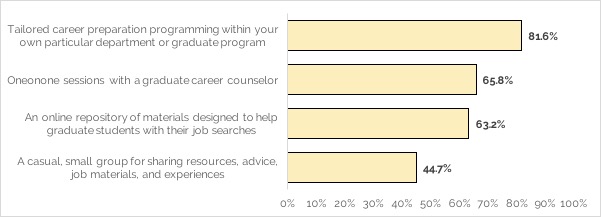
(n=38)
*Participants were able to select more than one response
Our survey also unveiled that 40.5 % feel supported by their peers and 58% reported they are unfamiliar with campus resources. In response to this data, graduate students on campus are teaming up to create a UC San Diego Humanists@Work (HumWork) chapter to leverage the existing peer support networks and emerging humanities focused resources produced through our career services center. The idea to develop local chapters across UC campuses emerged at our first HumWork team meeting in 2016 in response to feedback from past HumWork workshop participants. Participants are hungry for additional opportunities throughout the year to foster HumWork’s aim to make alternative career paths visible and career training accessible. In our planning sessions, thus far, we’ve reiterated our investment in replicating the empowering spirit of HumWork workshops that prioritize treatment of graduate students as valued working professionals. While we recognize the resource providers, departments, and graduate division play a vital role on the institutional side, this local initiative is all about building our community from the inside out; curating creative strategies for communicating the value and labor of humanities PhDs to academic institutions, employers, and ourselves.
Meg Sparling, English, UC Davis
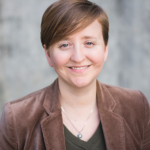 At the UC Davis campus, the survey data reveals that graduate students feel rather unfamiliar with the career programming available to them on campus—despite our programming being fairly robust compared to other universities. Only 10% felt very familiar with their campus career resources, while 45% felt somewhat familiar and 41% felt unfamiliar. This suggests that both the design and communication of our career programming is falling flat to a certain extent. In addition, I was fascinated to see that nearly 80% of UCD grad students want more career programming within their graduate degree programs, tailored toward their particular experience and goals. This is not the model at this time; the vast majority of career events are put on by units outside of the grad programs, and are designed to apply to all graduate students, to all humanities and social science grad students, or to all STEM grad students. The data reflects that UCD students are not as interested in such broad professionalization events as they would be in events designed by their own graduate programs. Finally, as someone who is deeply interested in the academic labor crisis, I was rather surprised to see that nearly 70% of my fellow graduate students are still planning to pursue tenure-track jobs. Leaving the feasibility of this aside, it is worth noting that much of the career programming at UC Davis is geared toward preparing for alt-ac or non-academic jobs—not to helping grad students prepare for the tenure-track job market. An important note for administrators: campus units involved in career programming should not forget grad students’ desire for the tenure-track job as they develop the topics of their workshops—even if (or perhaps especially if) the students’ ability to secure such jobs is limited.
At the UC Davis campus, the survey data reveals that graduate students feel rather unfamiliar with the career programming available to them on campus—despite our programming being fairly robust compared to other universities. Only 10% felt very familiar with their campus career resources, while 45% felt somewhat familiar and 41% felt unfamiliar. This suggests that both the design and communication of our career programming is falling flat to a certain extent. In addition, I was fascinated to see that nearly 80% of UCD grad students want more career programming within their graduate degree programs, tailored toward their particular experience and goals. This is not the model at this time; the vast majority of career events are put on by units outside of the grad programs, and are designed to apply to all graduate students, to all humanities and social science grad students, or to all STEM grad students. The data reflects that UCD students are not as interested in such broad professionalization events as they would be in events designed by their own graduate programs. Finally, as someone who is deeply interested in the academic labor crisis, I was rather surprised to see that nearly 70% of my fellow graduate students are still planning to pursue tenure-track jobs. Leaving the feasibility of this aside, it is worth noting that much of the career programming at UC Davis is geared toward preparing for alt-ac or non-academic jobs—not to helping grad students prepare for the tenure-track job market. An important note for administrators: campus units involved in career programming should not forget grad students’ desire for the tenure-track job as they develop the topics of their workshops—even if (or perhaps especially if) the students’ ability to secure such jobs is limited.
How familiar are you with campus career preparation resources? (Davis)
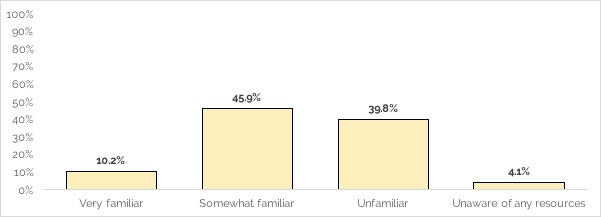
(n=98)
Dorie Perez, Interdisciplinary Humanities, UC Merced
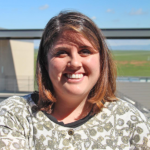 Much of the results of the survey initiated at UC Merced speak to the growing pains of a program – specifically, the Interdisciplinary Humanities graduate program- experiencing sudden changes to its curricula and student body. After increasing from 30 to 51 students in one year alone (2015-2016), there have been multiple attempts to gauge the graduate student climate through surveys and workshops as initiated by faculty, students and staff. For this most recent survey, only 13 out of 51 active students completed our student-administered survey on program career preparation. This “missing data” from Merced is telling of the program’s climate, a climate in which there is a lack of cohesive programmatic goals for graduate students and broader conversations about support/inclusion in the Humanities.
Much of the results of the survey initiated at UC Merced speak to the growing pains of a program – specifically, the Interdisciplinary Humanities graduate program- experiencing sudden changes to its curricula and student body. After increasing from 30 to 51 students in one year alone (2015-2016), there have been multiple attempts to gauge the graduate student climate through surveys and workshops as initiated by faculty, students and staff. For this most recent survey, only 13 out of 51 active students completed our student-administered survey on program career preparation. This “missing data” from Merced is telling of the program’s climate, a climate in which there is a lack of cohesive programmatic goals for graduate students and broader conversations about support/inclusion in the Humanities.
Of those who completed the survey, most want insight into potential jobs or career opportunities other than those in academia, though a majority agreed that they would be primarily seeking employment in the academy after graduation. In general, most surveyed agreed that they wanted more career guidance and information, including for jobs outside/alongside the academy. The lessons for Merced as it moves beyond its “start up” phase of development–at only 3 years old, the program is the youngest in the system–is that more graduate infrastructure is needed and desired at all stages of graduate studies. Additionally, careers outside/alongside the academy remain understudied, under accounted for (tracking of alumni), and not discussed as viable options for our graduate students.
Erica Lee, History, UC Berkeley
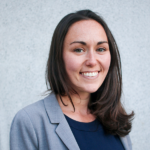 Where do graduate students turn for support as they embark upon career exploration beyond the tenure track? The survey suggests that doctoral candidates at each campus feel very different levels of support (or lack thereof) from their departments, universities, and peers when it comes to exploring careers beyond the academy. As a Berkeley student, I was struck by the fact that colleagues at other campuses reported feeling supported by their departments and university much more than Berkeley students reported. Only 13.5% (30) of Berkeley students feel supported by their department, whereas 53.6% (119) do not feel supported by their department. The campus outlook is somewhat better: 17.6% (39) feel supported by the university, while 35.6% (79) do not feel supported. But students overwhelmingly go to their peers for support— 51.4% (114) feel supported by their peers, and only 18% (40) do not.
Where do graduate students turn for support as they embark upon career exploration beyond the tenure track? The survey suggests that doctoral candidates at each campus feel very different levels of support (or lack thereof) from their departments, universities, and peers when it comes to exploring careers beyond the academy. As a Berkeley student, I was struck by the fact that colleagues at other campuses reported feeling supported by their departments and university much more than Berkeley students reported. Only 13.5% (30) of Berkeley students feel supported by their department, whereas 53.6% (119) do not feel supported by their department. The campus outlook is somewhat better: 17.6% (39) feel supported by the university, while 35.6% (79) do not feel supported. But students overwhelmingly go to their peers for support— 51.4% (114) feel supported by their peers, and only 18% (40) do not.
Compare this to other UCs: 36.2% (34) of Davis respondents and 24.3% (9) of San Diego respondents feel supported by their department. That’s 2 and 3 times the proportion of Berkeley respondents who reported similarly. 37.2% (35) of Davis respondents do not feel supported by their departments, and for San Diego the proportion was somewhat higher at 43.2% (16). These numbers are still troubling, and I hope that new initiatives fostered by Humanists@Work, NEH Next Generation grants, and students services can help departments learn how to provide more support to their students. But I think that the disparity between Berkeley, Davis, and San Diego warrants attention.
Do you feel you have support to pursue a career beyond academia? (all campuses)*

*Participants were able to select more than one response
Does this lack of departmental support contribute to the sense of stigma many students reported? Respondents at Berkeley, Davis, and San Diego consistently called attention to the stigma surrounding the pursuit of careers beyond the tenure-track. One Berkeley respondent wrote: “Pursuing an alternative career to an academic one is very stigmatized in our department and considered a sign of failure. Thus, it is impossible to be honest about exploring other career alternatives.” This issue might partially explain other findings from the survey—for instance, why almost half of Berkeley respondents were unfamiliar with existing career development resources. A number of stakeholders at Berkeley have focused efforts around reducing the perceived stigma surrounding career pursuits outside of the tenure track. The survey confirmed the necessity–even urgency–of that effort. But it also suggests that Berkeley might find working models within the UC system to deploy. Why do Berkeley students feel comparatively little support from their departments and universities? What are faculty members and departments at Davis, Merced, and San Diego doing that Berkeley could borrow? Some responses from students at other UCs suggest what support might look like: “My mentors go out of their way to connect me with connections they have outside of academia,” one boasts. For their part, Berkeley students have ideas about what support might look like: “the department would need to recognize that it has a responsibility to its students to help them prepare to find some kind of employment after graduation.” Another student suggested consistent mentorship that left aside the presumption of a tenure-track job and instead focused on a more basic question: “What is the difference we hope to make in the world?”

